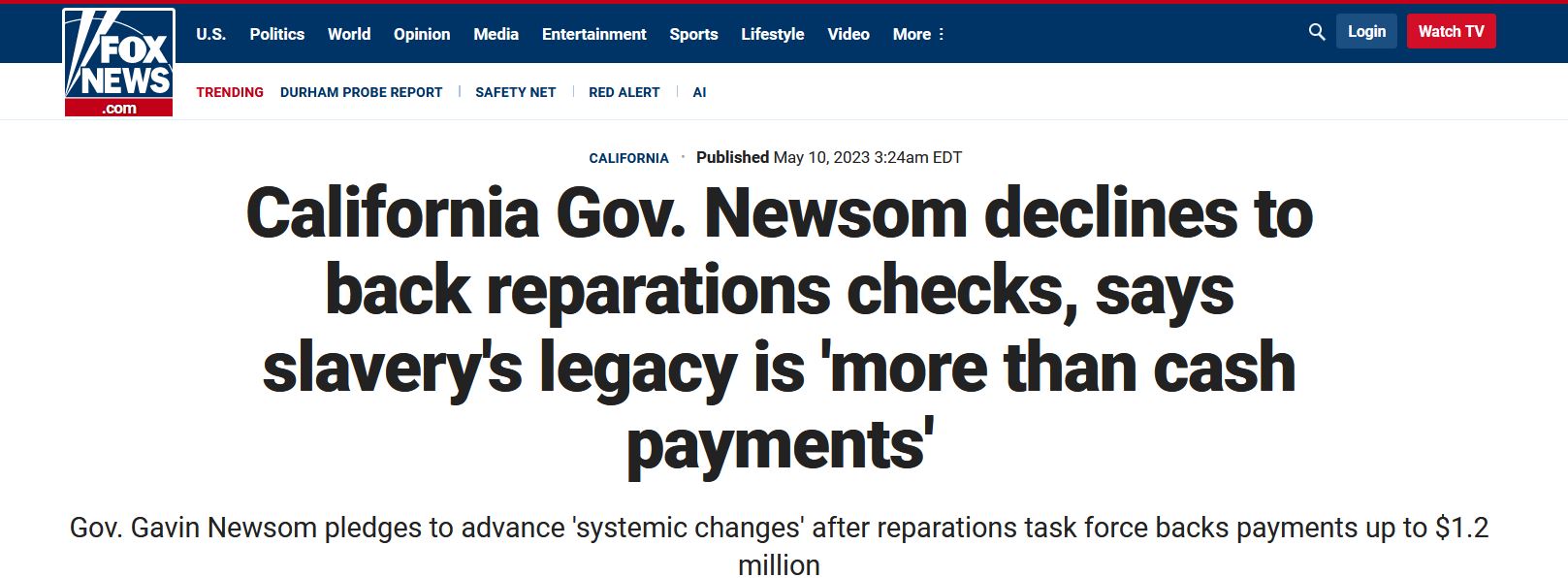
Furious parents marched their children across picket lines of striking teachers in Oakland, California, on Friday on the seventh day of a strike in which teachers are demanding reparations for slavery, among other demands.
Say what you want about France, but they don’t play “follow the leader”. They protect their interests and make their own decisions. On race relations, they seem to have a sensible policy. I had some idea of how they handled diversity issues, so found this Brookings Institute article to be interesting.
Brookings: Race Policy in France
France has developed an approach to dealing with ethnic problems that stands in contrast to that of many advanced, industrialized countries. Unlike the United States, Britain, or even the Netherlands, France maintains a “color-blind” model of public policy.
See what I mean? They decide for themselves. “Color-blind” should be our thing since Martin Luther King Jr was our guy.
This means that it targets virtually no policies directly at racial or ethnic groups. Instead, it uses geographic or class criteria to address issues of social inequalities.
Doesn’t that make sense? There have been several instances of people falsely claiming to belong to a racial or ethnic group. Geographic or class criteria are harder to fake. It’s also more productive. It’s vulgar to call a White person from rural Appalachia privileged.
Unlike many other West European countries, and very much unlike English-speaking immigrant societies such as the United States, Canada or Australia, France has intentionally avoided implementing “race-conscious” policies. There are no public policies in France that target benefits or confer recognition on groups defined as races. For many Frenchmen, the very term race sends a shiver running down their spines, since it tends to recall the atrocities of Nazi Germany and the complicity of France’s Vichy regime in deporting Jews to concentration camps.
It’s interesting that is what France took from World War II. The Germans seem to have taken an anti-nationalist message. Being proud of your country is almost obscene.
Race is such a taboo term that a 1978 law specifically banned the collection and computerized storage of race-based data without the express consent of the interviewees or a waiver by a state committee. France therefore collects no census or other data on the race (or ethnicity) of its citizens.
That is refreshing to read. It is impossible to imagine an American politician suggesting that we remove race and ethnicity from all government databases, forms and surveys. “Nope, we don’t track that data.”
The Educational Priority Zones (ZEP) initiative, for example, funnels supplemental money to disadvantaged school districts, many of which contain elevated numbers of immigrant ethnic minorities and their children.
People are often surprised that big urban districts are amongst the best funded. Cleveland, Akron, Youngstown, are all spending over $25,000 per pupil. Rural districts, with fewer than 50 students per square mile are spending less than $12,000 per pupil.
It’s less patronizing and less racist to help people who started with less, than it is to assume that race or ethnicity automatically confers a liability that requires additional assistance.